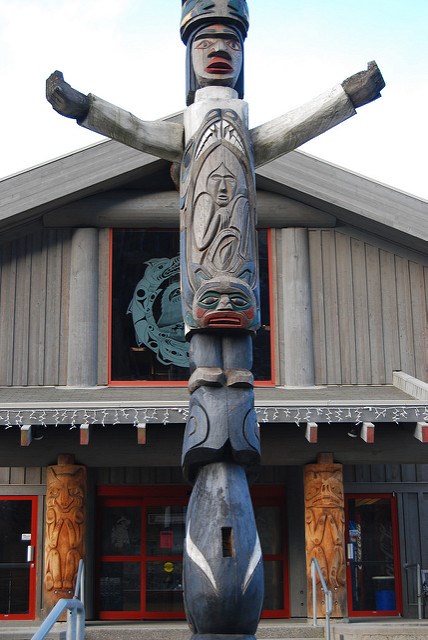We all know Squamish sits on the unceded territory of the Squamish Nation.
And many of us understand that the Nation’s decisions play a huge role in what our community is and will be. The Nation’s independent review of the Woodfibre LNG proposal allowed it to move forward. And the Nation’s leadership has partnered on various development proposals in the Sea to Sky Corridor, and its businesses flourish here too.
We understand that a society cannot thrive if diseased by racism.
But how many non-Natives in Squamish have made an effort to understand broader First Nation perspectives on this town and this country?
The vast majority of Squamish non-Native residents (settlers) want reconciliation with Indigenous peoples and grasp, at least on some level, the harm done by the residential school system. Some are likely sporadically following the Missing and Murdered Indigenous Women and Girls Community Hearings.
But for most, these are tragedies of the past.
Too few non-Aboriginals seem to seek out current First Nation perspectives.
If the majority of Squamish residents were aware of these perspectives over the last few weeks, there would be some sign of it: some collective gasp, some vigil or march, as there has been in other cities.
Recent verdicts brought down in the murders of Indigenous youth Colten Boushie and Tina Fontaine and the outpouring of pain that resulted has not been felt to the extent it needs to be by non-natives in the Sea to Sky Corridor.
Because of these verdicts, many First Nations people have publicly declared they feel hope is lost and reconciliation has failed.
This needs to be heard and understood here.
It is not the job of Indigenous people to come to non-Indigenous people and educate.
So, if you don’t already, start to seek out First Nation perspectives.
Follow local Squamish Nation leaders, including the writings and social media of Khelsilem (Dustin Rivers) and the teachings of Tsawaysia Spukwus (Alice Guss).
Read the some of the many outstanding and consciousness-raising pieces by Robert Jago.
The internet is amazing because we can access the world, but sadly the majority of us don’t. We follow and “friend” people who look and think like us on Facebook. We scroll through our newsfeeds or watch traditional news broadcasts and consider ourselves informed.
We are not. But we can be. It is not hard.
There are a plethora of Indigenous voices and stories to access online — far more than can be included here — (the satirical) Walking Eagle News, The Salish Sea Sentinel, and of course mediaINDIGENA and the Aboriginal Peoples Television Network (APTN) are good places to start.
Search out as many First Nations sources as you can: read, absorb, listen — keep listening.
We cannot evolve until we understand.
If you have ideas for more local sources our readers should search out or that we could write about in our pages, let us know at [email protected].
— Jennifer Thuncher



